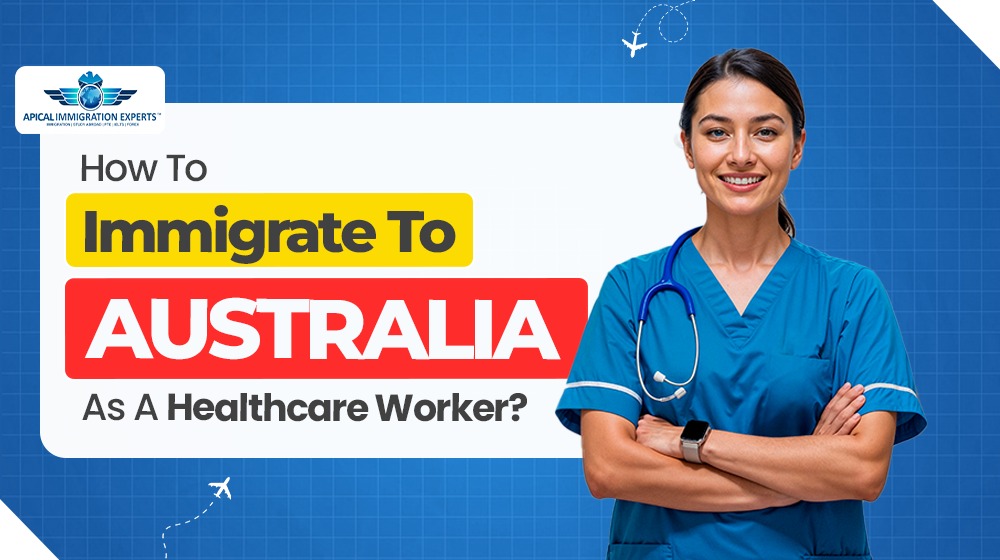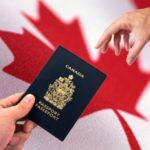Australia has long been a popular destination for skilled professionals seeking better career opportunities, a high standard of living, and a multicultural environment.
Among skilled professions, healthcare workers are in high demand due to Australia’s growing population and increasing healthcare needs.
If you are a doctor, nurse, allied health professional, or other healthcare worker, immigrating to Australia can be a rewarding career move.
This guide will walk you through the key steps, requirements, and pathways to make your dream of working in Australia a reality.
Start Your Australia PR Journey – Check Eligibility Online
Why Australia Needs Skilled Healthcare Workers
-
Understand Australia’s Healthcare Immigration Needs
Australia’s healthcare system regularly identifies shortages in specific medical fields. This includes doctors, nurses, aged care workers, and allied health professionals such as physiotherapists, occupational therapists, and sonographers. By targeting occupations listed on the Medium and Long-term Strategic Skills List (MLTSSL) or Short-term Skilled Occupation List (STSOL), healthcare professionals increase their chances of qualifying for skilled migration visas.
-
Choose the Right Visa Pathway
Several visa options are available for healthcare workers:
Skilled Migration Visas
- Subclass 189 (Skilled Independent Visa): Does not require employer sponsorship or state nomination. Best for those meeting all eligibility criteria independently.
- Subclass 190 (Skilled Nominated Visa): Requires nomination by an Australian state or territory. Some states may request a job offer in your field.
- Subclass 491 (Skilled Work Regional Visa): Regional visa requiring state or territory nomination or family sponsorship in regional areas. Promotes work in regional healthcare centers.
Employer-Sponsored Visas
- Subclass 482 (Temporary Skill Shortage Visa): Allows employers to sponsor healthcare workers for temporary employment.
- Subclass 186 (Employer Nomination Scheme Visa): Permanent residency through employer sponsorship for eligible healthcare workers.
Other Pathways
- Global Talent Program: For highly experienced healthcare professionals with specialized skills, including medical researchers and clinical specialists.

-
Obtain Skills Assessment
Before applying for skilled migration, healthcare professionals must have their qualifications assessed by relevant Australian authorities:
- Doctors: Australian Medical Council (AMC)
- Nurses and Midwives: Australian Nursing & Midwifery Accreditation Council (ANMAC)
- Allied Health Professionals: Respective assessing authorities such as Australian Physiotherapy Council or Occupational Therapy Board of Australia
A successful assessment confirms that your overseas qualifications and experience meet Australian standards.
-
Meet English Language Requirements
Proficiency in English is mandatory. Most applicants are required to provide scores from tests like:
- IELTS (International English Language Testing System)
- OET (Occupational English Test) – specifically for healthcare professionals
- TOEFL iBT or PTE Academic
The minimum scores vary depending on visa type and profession, so check your occupation-specific requirements carefully.
-
Gather Work Experience & Registration
Most healthcare visas require professional registration with the appropriate Australian regulatory body, such as:
- Medical Board of Australia for doctors
- Nursing and Midwifery Board of Australia for nurses
- Allied health boards for therapists and technicians
Work experience in your field enhances your eligibility and increases points for skilled visas.
-
Submit an Expression of Interest (EOI)
For skilled visas like subclass 189, 190, or 491, you must submit an Expression of Interest (EOI) through SkillSelect. Key steps include:
- Providing personal and professional details
- Selecting your occupation and visa preference
- Meeting minimum points requirement (usually 65 points)
Once your EOI is submitted, you may receive an invitation to apply for the visa.
-
Health and Character Checks
Australia requires all applicants to meet strict health and character standards. This includes:
- Medical examination: Conducted by an approved panel physician
- Police clearance certificates: From countries you have lived in for more than 12 months
For healthcare workers, passing these checks is essential to ensure patient safety and public health standards.
-
Apply for Your Visa
Once invited, submit a complete visa application along with:
- Skills assessment report
- Proof of English proficiency
- Employment references and registration documents
- Health and character documents
Processing times vary depending on visa type, but skilled healthcare visas generally take several months.
-
Prepare for Arrival and Work in Australia
After visa approval:
- Apply for professional registration if not already completed
- Seek employment in hospitals, clinics, aged care facilities, or regional health centers
- Understand Australian workplace standards and healthcare regulations
Some states and regions may offer incentives like relocation support and additional training programs.
-
Tips for a Smooth Migration Process
- Start early with skills assessment and English testing
- Stay updated on state-specific nomination requirements
- Keep accurate documentation of your education, work experience, and certifications
- Consider migration agents or consultants for guidance if needed
Final Thoughts:
Immigrating to Australia as a healthcare worker is a highly achievable goal, thanks to the strong demand for skilled professionals.
By carefully following visa pathways, obtaining proper assessments, and meeting registration requirements, you can launch a successful career while enjoying Australia’s high quality of life.
Whether your goal is to work in a metropolitan hospital or a regional clinic, the opportunities for healthcare professionals in Australia are vast and rewarding.
Start your journey to Australia today—explore visa options, get your skills assessed, and take the first step toward a rewarding healthcare career!
- Email: info@immigrationxperts.com
- Call us: +91-9999467686, +91-8447-696555






